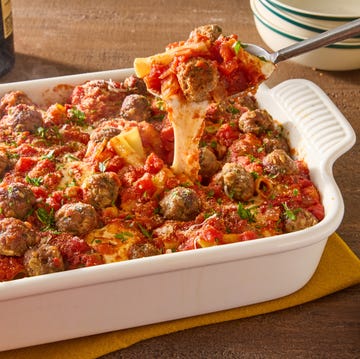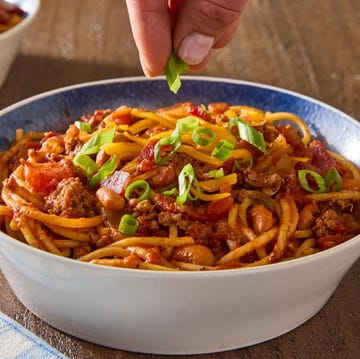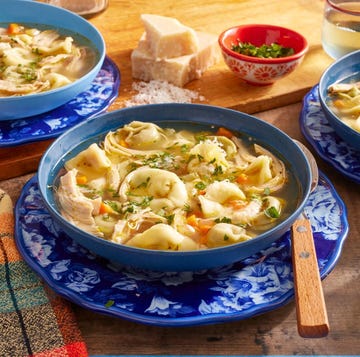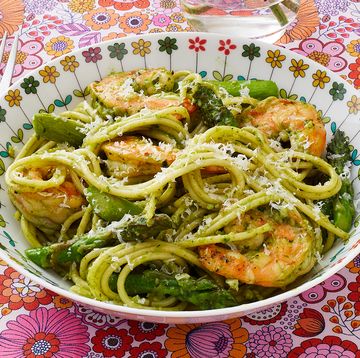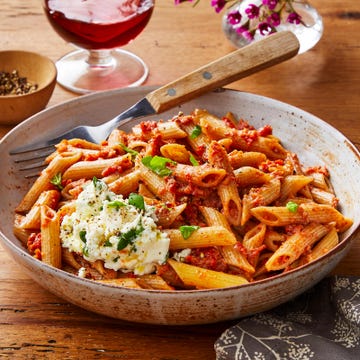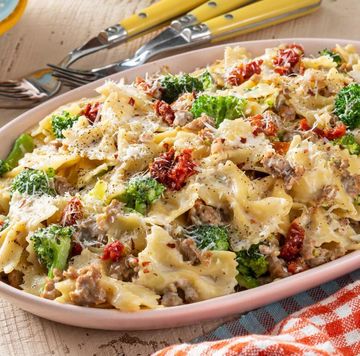Whether you’re cooking lasagna for a family-friendly Sunday night dinner or whipping up a quick 30-minute meal, you’ve probably heard chefs (or even your own nonna!) say that you should salt your pasta water. Some go so far as to say that your pasta water should be as salty as the sea.
So, should you salt pasta water? If you thought this was a cooking myth, think again. Yes, you should add salt to boiling water when you’re cooking pasta. But how much salt do you really need to add to your pasta water? Does it make that much of a difference? Find out the flavorful facts to ensure that your next pasta dish is as delicious as your favorite Italian restaurant.
How Much Salt Should I Add to My Pasta Water?
Salt adds so much flavor to your pasta dish, but how much salt is too much (or too little?). As a general rule of thumb, add two to three tablespoons of kosher salt per pound of pasta—or per gallon of water. If you’re using table salt, which is actually saltier than regular kosher salt, you can reduce the amount to just one to two tablespoons. You can always use a spoon to carefully taste the water and adjust the salt content accordingly. Just be careful when tasting since the water will be hot.
If you’re worried about consuming so much salt, keep in mind that the pasta will only absorb a small amount of the salt that you add to the water. Most of it will go down the drain with the rest of the water, so you don’t need to worry about consuming a super salty pasta dish.
Why Do You Add Salt to Pasta Water?
You’ve probably heard that you should season a dish throughout the cooking process rather than at the end just before serving. For example, if you're making a spaghetti sauce, you should salt any vegetables that you sauté like peppers and onions, the ground meat, and the tomatoes throughout the cooking process.
The same goes for cooking pasta. Think of salting the water as the first step to seasoning your pasta before you add a hearty bolognese or creamy alfredo sauce. You’re actually seasoning the pasta itself with salt, which will result in a more well-rounded flavor. Most types of pasta, including both fresh and dried varieties, are made with little to no salt. Be sure to taste the pasta with and without the sauce and any other toppings before adding additional salt. Season to taste accordingly.
When Should You Add Salt to Pasta Water?
You might be wondering if it's better to add the salt before or after the water has come to a boil. Turns out, it doesn't make a huge difference, but if you want to cook like the pros, the best time to add salt to pasta water is once the water has come to a rapid boil. This will ensure that the salt dissolves quickly and easily into the water. If you do add salt before the water starts to boil, just be sure to give it a good stir to make sure that the salt crystals are dispersed evenly.


